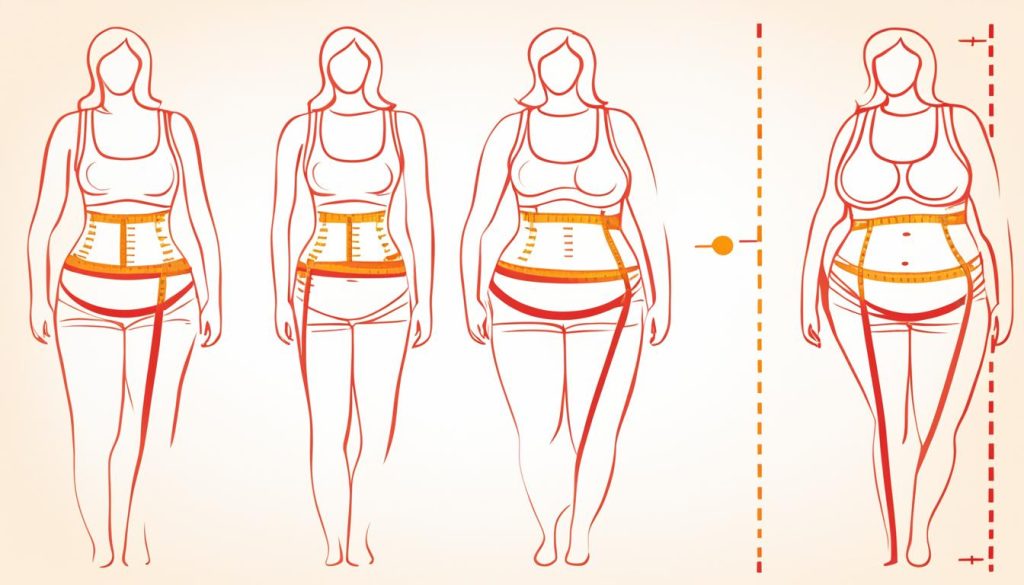Did you know over two-thirds of adults in the US are overweight or obese? This has led many to look for fast weight loss diets. They want to improve their health by losing extra weight.
Ready to find the diet that will meet your weight loss goals? Keep reading for the information you need.
Very Low-Calorie Diets (VLCD)
Very low-calorie diets (VLCDs) aim to cut weight fast by severely limiting calories. They often suggest only 800 calories a day, much lower than usual. These diets are good for overweight people needing quick weight loss for health. They also prepare the body for weight-loss surgery by reducing liver size.
VLCD users get their nutrition from special meal replacements. These can include formulas, soups, shakes, and bars. It ensures they still get essential vitamins and minerals but with fewer calories. So, the body doesn’t miss out on the nutrients it needs, even with a big cut in calories.
It’s crucial to have a doctor supervise a VLCD. Following a VLCD without medical advice can be risky. They might not suit everyone and could harm those with specific health concerns. For example, pregnant or nursing women should avoid VLCDs. The same goes for those with eating disorders or certain health issues.
“VLCDs are an effective way to achieve rapid weight loss for those who need it, but it’s crucial to do it safely and under medical supervision.”
The Benefits of VLCDs:
- VLCDs can quickly shed pounds, boosting motivation early on.
- Improved health by cutting weight can better blood pressure, cholesterol, and sugar levels.
- They might make it easier to keep weight off by introducing healthier eating habits.
The Potential Risks of VLCDs:
- With so few calories, it’s hard to get all the nutrients needed without meal replacements.
- VLCDs may result in losing muscles as well as fat. Adding exercise helps prevent this.
- Your metabolism might slow down after a VLCD, which can lead to gaining weight back easily.
Low-Calorie Diets (LCD)
Low-Calorie Diets (LCDs) are better for fast weight loss than very low-calorie diets (VLCDs). Women can eat 1,000 to 1,200 calories daily, and men can have 1,200 to 1,600 calories. LCDs mix meal replacements with regular food, making them simpler to follow than VLCDs.
Research shows LCDs work well for losing weight without the quick pace of VLCDs. This makes the process safer. People can drop weight at a steady pace and keep it off.
Always start an LCD with advice from a healthcare expert. They will make sure the plan matches your needs. They’ll also check your progress, so things go smoothly.
LCDS mean eating a balanced, nutritious diet within calorie limits. Include foods rich in vitamins, minerals, and nutrients for good health. A health expert can design a diet that fits what you like to eat.
Just dieting might not solve weight problems long-term. It’s key to stay active and adopt good habits for lasting health and weight control.
Before starting any diet, especially an LCD, talk to a pro. They’ll help you see if it’s right for you based on your health and goals.
The Benefits of LCD:
- Provides a more moderate approach to rapid weight loss
- Allows for a greater variety of foods compared to VLCDs
- Reduce the risk of nutritional deficiencies
- Can be sustained for a longer duration than VLCDs
The Potential Challenges of LCD:
- May not provide as rapid weight loss as VLCDs
- Requires careful planning to ensure nutrient adequacy within the calorie limits
- Individual adherence may vary

Intermittent Fasting and Time-Restricted Eating
Intermittent fasting and time-restricted eating are popular ways to lose weight fast. The 16:8 method is one way to do it. You eat all your meals within an 8-hour window. Only drink things like water, unsweetened tea, and black coffee when you’re fasting. This method helps cut down on calories and uses up stored fat for energy.
Time-restricted eating is similar but not quite the same. You pick a specific time frame to eat each day, like from noon to 8 pm. This leaves 16 hours for fasting. It can make you eat less, burn fat more, and improve how well your body uses energy.
Even though these methods sound great for losing weight fast, we still don’t know a lot about how they affect weight in the long run. Some evidence shows they can help shed pounds and lower fat, but more studies are needed. These studies would help understand both the good and the not-so-good sides of these diets.
The Potential Benefits of Intermittent Fasting and Time-Restricted Eating
People who like intermittent fasting and time-restricted eating say they do more than just help with weight. They also might:
- Help your body use insulin better, which could lower your diabetes risk.
- Start a process called autophagy, where old cells are cleared out. This might slow down aging and fight diseases.
- Make your brain work better, according to some research.
Intermittent fasting and time-restricted eating are popular diet strategies that can potentially lead to rapid weight loss. While these approaches may offer promising results, it’s important to note that there is limited information available about their long-term effects on weight management.
Fad Diets
Many look for the quickest way to shed pounds and turn to fad diets for fast results. Yet, these diets might not be the best for keeping weight off or staying healthy. They rely on eating very few calories to lose weight fast. But, this can be harmful and not last long.
Healthcare professionals usually don’t recommend fad diets. They might help you lose weight quickly at first. But, once you stop eating so little, the lost weight often returns. Also, these diets can hurt your body in various ways.
Fast weight loss from fad diets can up your chance of getting gallstones and gout. They can also leave you feeling tired, blocked up, or with a funny stomach. These diet changes can make you feel bad and might not be worth the quick weight loss.
It’s better to pick a diet that lets you lose weight slowly and surely. Losing about 1/2 to 1 pound every week can be healthier and last longer. This way, you can lose weight safely without harming your health.
“Fad diets often promise quick weight loss, but they don’t provide a sustainable solution for maintaining a healthy weight. It’s important to focus on long-term lifestyle changes that prioritize nutritious eating and regular physical activity.”
Making healthy food choices and working out can help you lose weight the right way. Pick foods that give you a lot of nutrients. This will help make sure you’re getting all the important stuff your body needs.
Remember, losing weight takes time and focus. Don’t be fooled by diets that sound quick and easy but don’t work in the long run. Choose a way of living that helps you be your best self for the rest of your life.
The Military Diet
The military diet, also known as the 3-day diet, is a quick weight loss plan. It claims you can lose up to 10 pounds in a week. Many people like it because it offers fast results. But, there isn’t much research to support its long-term success. And, eating too few calories can be bad for your health.
This diet has a simple structure. For three days, you eat foods like hot dogs, tuna, eggs, and fruits. Then, you get four days to eat what you want. But, if you want to lose weight faster, there’s a plan to follow for those four days.
It’s key to remember that while the military diet does focus on what you eat and in what amounts, it lacks scientific proof. Always check with a doctor or dietitian before you start a diet like this. They can help you choose a safer and more effective plan.
| Pros | Cons |
|---|---|
| – May result in rapid weight loss | – Severe calorie restrictions may pose health risks |
| – Provides a structured meal plan | – Limited research supporting its effectiveness |
| – Offers flexibility with 4 days off | – No scientific evidence to support claims |
The military diet might help you shed some weight quickly. But, it’s crucial to think about the risks and the lack of proof it really works. For lasting weight control and good health, a steady and personalized eating plan is better. Talking to a healthcare provider or dietitian can give you advice tailored to your needs.
The Mayo Clinic Diet
The Mayo Clinic Diet helps with long-term weight control and healthy eating. It was created by the Mayo Clinic experts. This plan is about changing your daily routines. These changes lead to steady and lasting weight loss.
This diet is not a quick fix. It shows that healthy eating and regular exercise are the keys to keep pounds off. By making small changes each day, you can meet your weight loss target and stay fit for life.
Healthy Eating Habits:
It recommends eating great, healthy foods. The diet suggests a mix of fruits, vegetables, lean meats, whole grains, and good fats. By doing so, you ensure your body gets all the important nutrients.
Estimating Portion Sizes:
Knowing the right portion sizes is key. The Mayo Clinic Diet helps you understand how much to eat for the right calorie balance. This way, you avoid eating too much and help your weight loss efforts.
Meal Planning:
Planning meals ahead is important in this diet. It helps you choose better and avoid sudden, unhealthy treats. Plus, it keeps you on target with your calories and nutrition.
Regular Physical Activity:
Exercise is essential for managing weight properly. This diet recommends adding exercise that fits your fitness level and likes. Regular exercise helps you burn calories, strengthen your muscles, and feel better overall.
Personalized Guidance:
The Mayo Clinic Diet offers advice tailored to every person. It looks at things like your health past, your age, and what you like to eat. This way, you get a plan that really works for you.

This diet puts you in charge of your weight and health. With good eating and regular activity, you can keep the weight off and feel great.
Next, let’s look at fast weight loss diets. But remember, they come with risks and rule restrictions.
Conclusion
However, it’s important to follow them with a healthcare provider. It’s also crucial to do them for a short while. Intermittent fasting and time-restricted eating are popular options. But we’re not sure of their long-term weight loss effects yet.
It’s best to steer clear of fad diets that drastically cut calories. They’re not good for keeping weight off long-term. The military diet might help in the short term.
Yet, there’s not enough proof it works over time. The Mayo Clinic Diet is different. It aims to manage weight by encouraging healthy eating habits. Regular exercise is also a key part of it.
Before diving into any weight loss plan, talk to your doctor. You want to make sure it fits your needs. Remember, losing weight successfully is about balance. It’s also about making lasting life changes. Choosing the right diet can help you lose weight faster. You’ll meet your goals while keeping your health in check.




